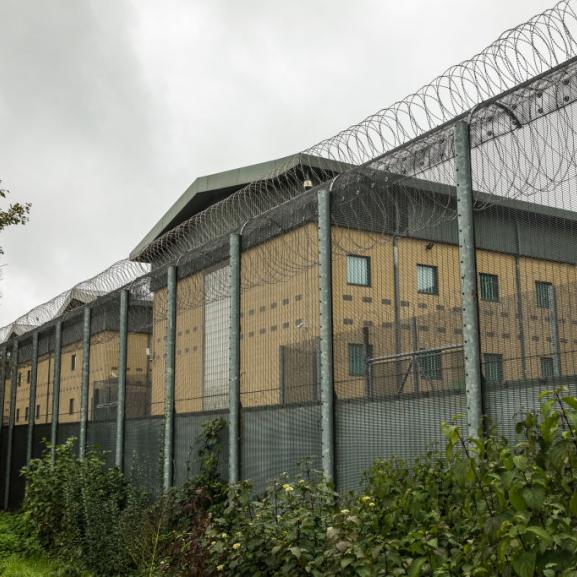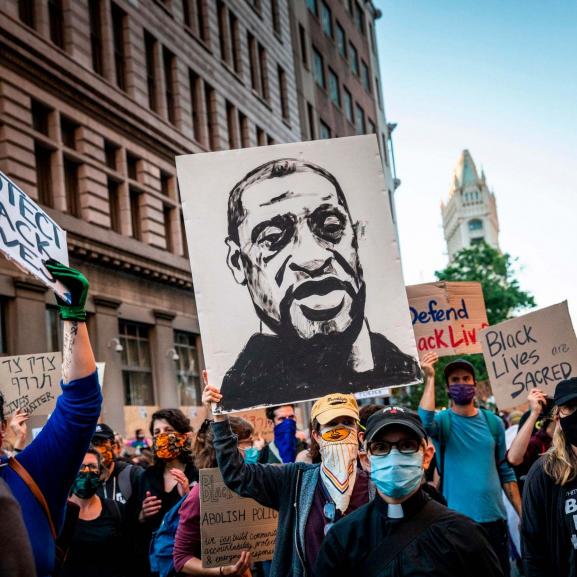Supporting torture victims or giving in to employers' demands? A false, wretched choice
This blog is based on a speech at our recent joint Doctors Against torture conference with the BMA and Amnesty international.
I have gone to prison many times - into immigration removal centres (IRCs) to put it more accurately - to examine detainees who need a medico-legal report to document evidence of torture. In this work I have seen at first hand the difficulties of the doctors working in such settings in addressing the issue of dual loyalty.
In detention settings, healthcare issues – both physical and mental – are varied and complex. Many immigration detainees will have experienced some kind of psychological and physical trauma precipitating, or during, their flight to the UK. As a result, a detainee's suicide risk is many times higher than that of someone in the community.
Most detainees in immigration centres are only there for administrative reasons; they have not been charged with or convicted of a crime.
Doctors working in these detention settings need to be more than GPs with a broad base of experience in mental health conditions. They need to understand the ways in which detention per se impacts on health - for example that suicide rates are not only higher than in the civilian population but also higher in those on remand, many of whom will be found not guilty, compared to the rate in the convicted prison population.
Most detainees in immigration centres are only there for administrative reasons; they have not been charged with or convicted of a crime. Yet the presumption of guilt by association - simply being detained can often be taken to mean guilty of something- seems to taint the way in which immigration detainees are treated. It can also feed a culture of disbelief about anything they say.
IRC doctors may be the first to come across detainees who have been tortured. As such, they have a critical role to play in the detection and prevention of a range of human rights abuses and in enabling survivors to access their right to rehabilitation. But they may also be subject to institutional pressures to comply with practices that run counter to these roles.
Doctors in detention settings often work in professional isolation; the only doctor in the facility on any given shift so they rarely get to meet colleagues which might help ease the burden.
Could there ever be a situation where a doctor's duty to promote the health of their patient conflicts with their employer's need to maintain a contract with the Home Office and are their sufficient safeguards in place to prevent this from happening? There may be pressure to meet targets for consultation rates set by their employer, while doctors need time to complete examinations for evidence of torture or arrange appropriate investigations and follow up results.
In a detention setting, there is a risk the employer may be inclined to provide 'just enough' healthcare at the lowest possible cost for a highly transient population, despite the fact that the law states immigration detainees have the same rights to health care as any NHS patient. While these dual obligations may put pressure on a doctor and appear to blur the lines of their professional responsibilities, both international and national guidelines are unequivocal.
The needs of the patient must come before that of the employer (Standard Minimum Rules for the Treatment of Prisoners, UN 1955, and Principles of Medical Ethics relevant to the role of Health Personnel, particularly physicians, in the Protection of Prisoners and Detainees against Torture and other cruel, unusual or degrading treatment or punishment, UN 1982).
The revelations of medical complicity in CIA torture have shocked many in the medical world and must galvanise a frank discussion about dual obligations.
The British Medical Association's own guidance states that doctors must refuse to comply with any procedures that may harm patients or leave them physically or psychologically vulnerable to harm. Doctors must also ensure that their contractual terms allow them professional independence to make clinical judgements, and speak out where services in which they are involved are unethical, abusive, inadequate or pose a potential threat to a patient's health. Of course, theory and reality are two very different worlds. Doctors in detention settings often work in professional isolation; the only doctor in the facility on any given shift so they rarely get to meet colleagues which might help ease the burden.
The Istanbul Protocol – which lays out international standards for the forensic documentation of torture – warns that doctors in settings like detention centres risk burnout. Feelings of disillusionment, cynicism, helplessness and hopelessness may lead to depression or vicarious trauma symptoms. This can manifest in varied ways – from 'saviour syndrome' where a doctor feels as though they are the last hope for the patient, to anger or repugnance towards the patient due to feelings of guilt. Whatever the manifestation, these reactions can significantly limit the doctor's ability to give good clinical care, and it is vital that supervision and professional support are sought.
The revelations of medical complicity in CIA torture have shocked many in the medical world and must galvanise a frank discussion about dual obligations. This conference is a unique opportunity for us to explore ways to support doctors facing such pressures, and to strengthen the role of health professionals in the identification, recording and reporting of torture and its consequences.






